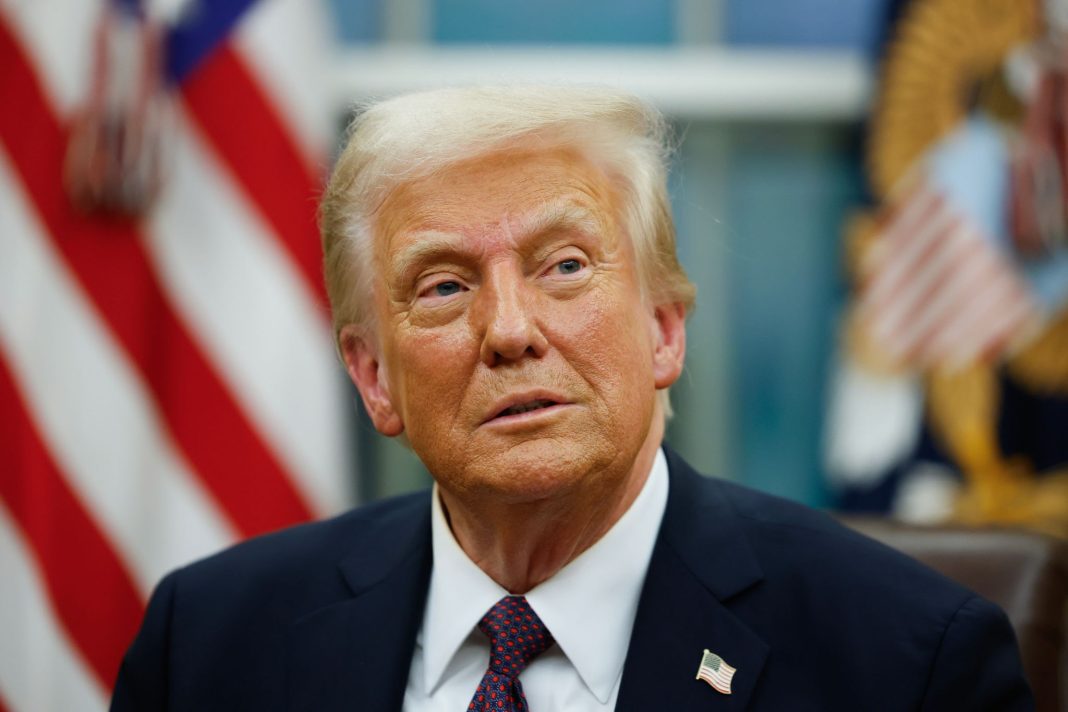By Billy Mijungu
Interestingly, Donald Trump’s chief economic adviser, Peter Kent Navarro, believes that Trump can ride the trade war on tariffs to victory.
Yet this war on all fronts may not augur well for the United States.
Traditional markets like the European Union are getting fatigued.
As a result, Trump’s aggressive policies may give new impetus to the growth of BRIC nations at a rate not previously envisaged.
While Trump is busy erecting tariff walls, BRICS is building bridges through de-dollarisation campaigns. As the United States tightens its grip, others are exploring how to bypass it entirely.
The market suffers in the process, with Trump’s trade policies sending ripples across the globe, leading to mounting financial anxiety.
That anxiety, I believe, is no accident.
Trump and his cabal of ultrawealthy elites, seemingly coordinated by the likes of Elon Musk, appear to be engineering a financial disruption.
Their play seems targeted at Wall Street’s 150th floor, buying up stock at rock bottom prices during induced volatility, then cashing in as markets recover.
For them, a U.S. recession is not a crisis; it’s an opportunity.
Yet, if poorly handled, this tariff war could become Trump’s Waterloo.
It could be the self-inflicted wound that brings his administration down.
For investors with assets outside the U.S., however, this may present an opportunity.
With traditional power centres stumbling, it could be the right moment to explore business opportunities in emerging economies, diversify portfolios, and seek financial grounding in less volatile territories.
President Trump has long claimed that other countries have been ripping off the U.S., even as the nation enjoyed strong growth.
His administration has imposed tariffs of 25 per cent on steel and aluminium, another 25 per cent on noncompliant goods from Mexico and Canada, and a staggering 145 per cent duty on Chinese imports.
Cars, auto parts, and a range of consumer goods have also been affected by new tariffs. This unpredictability has destabilised the global business environment.
Tariffs are announced, then walked back, then doubled down on, leaving businesses and entire countries in policy limbo.
According to Moody’s Ratings, Trump’s tariffs are likely to slow global economic growth significantly.
The Federal Reserve Chair Jerome Powell himself called these very fundamental policy changes with no modern precedent, a remark that triggered a slump in U.S. stock markets.
Confidence is evaporating, and not just in the U.S.
The world is recalibrating. China has strategically shifted some of its focus away from the U.S. by strengthening ties with Europe and diversifying its trading partners.
The European Union, under the leadership of Ursula von der Leyen, has made it clear that the West as we knew it no longer exists. With nearly 19 trillion dollars in GDP, the EU remains a formidable bloc.
Canada, Mexico, and India are all increasing their trade with Europe, drawn by its predictability and rule-based trade systems.
South East Asia is also pivoting quickly. Countries like Vietnam, Thailand, and Malaysia are ramping up engagement with both the U.S. and China, trying to avoid being collateral damage.
But they remain wary of becoming pawns in this geopolitical chess game.
Their economies are intricately tied to both superpowers, yet increasingly assertive in protecting local industries from being swamped by redirected Chinese goods.
Vietnam has slapped temporary antidumping duties on Chinese steel.
Malaysia has emerged as the world’s leading producer of rubber gloves, poised to benefit from Trump’s punitive tariffs on China.
Now, the question arises: where does Africa stand in this grand reshuffling?
Africa sits at a precarious yet potentially pivotal crossroads. While it is not directly targeted in Trump’s tariff agenda, the ripple effects are felt across the continent.
African exports may face stiff competition as global goods, especially cheap Chinese products, flood non-US markets.
This could stifle local industries that are still in their infancy and intensify dependency on external value chains.
But in this turbulence lies opportunity.
With the African Continental Free Trade Area (Afcfta) gaining momentum, Africa could position itself as a neutral trade zone, capable of attracting investment from both the East and West.
To do this, the continent must accelerate infrastructure development, enhance intra-African trade, and reduce its reliance on raw exports.
Africa must act decisively, not as a passive bystander but as an emerging player seeking to define its own economic destiny.
As Southeast Asia reaps unintended gains from Trump’s tariffs, Africa must ask itself whether it will continue to watch from the sidelines or seize this global moment to chart a new course.
Trump may want his tariffs to reset the world, but in the process, he may also be redrawing the economic map in ways that no one, not even his closest advisers, can fully control.




